#rust bank catholic
Text
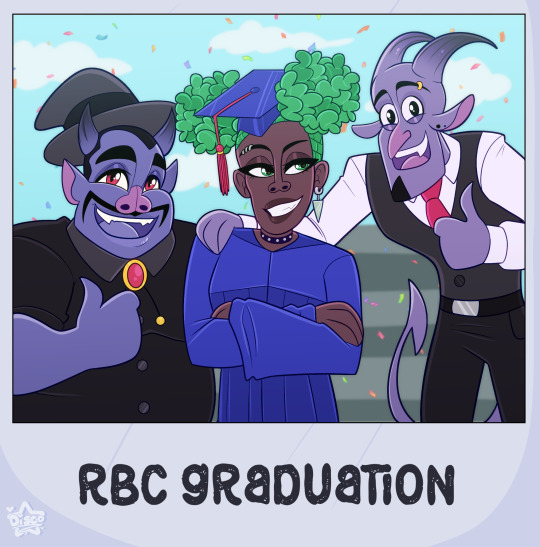
A couple years after the defeat of Klax Korp 💕🎉
#wendell and wild#kat elliot#wendell and wild fanart#rust bank catholic#rbc graduation#also ive gotten in the habit of drawing wild differently because i headcanon that he takes more after belzer than wendell does#ergo wild gets the more blue shade and belzers red eyes#i might change this overtime but thats why im drawing gim like this for now!
331 notes
·
View notes
Photo




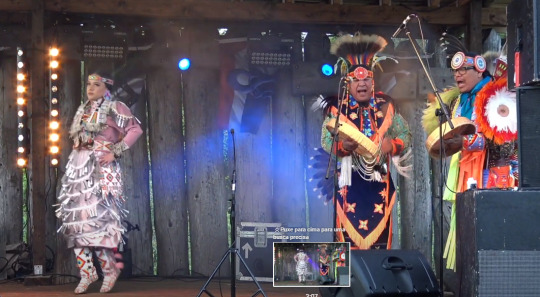
Every day praising an indigenous character —Day 34
Ms. Hunter from Wendell & Wild
Ms. Hunter is a Native American juvenile justice worker who sends Kat Elliot to the "Rust Bank Catholic School for Girls."
She is voiced by Tantoo Cardinal. Tantoo Cardinal is a Canadian actress of Cree and Métis descent. In 2009, she was named a Member of the Order of Canada "for her contributions to the growth and development of indigenous performing arts in Canada, The Cree are an indigenous people north of Abya Yala. They live primarily in Canada, where they form one of the largest First Country nations.
In Canada, more than 350,000 Cree people are registered or have Cree ancestry.
#every day praising an indigenous character#Ms. Hunter#Ms Hunter#wendell and wild#Wendell & Wild#animation#Indigenous peoples in Brazil#native character
862 notes
·
View notes
Text
Some neat things from Kat's legal documents!
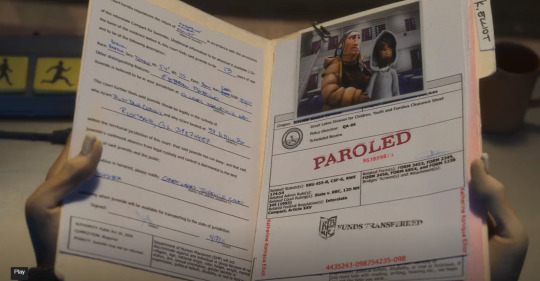
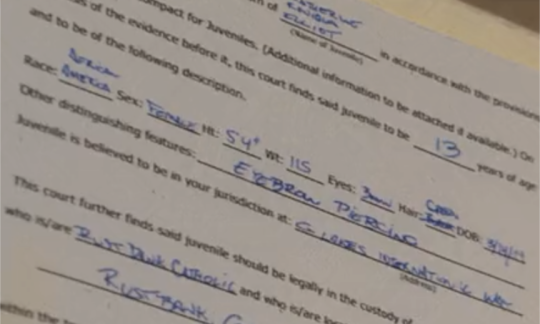
Here you can tell that she is 5ft 4inches, weighs 115 pounds, has brown eyes, originally had black hair color, and was born on 03/ 14/14 (March 14, 2014). I'm unsure if the birth year is right since it's kinda blurry, but if I'm right that would mean this film takes place in 2027 (five years into the future).
Also her full name is Katherine Konique Elliot, but we already knew that from Sibohan.
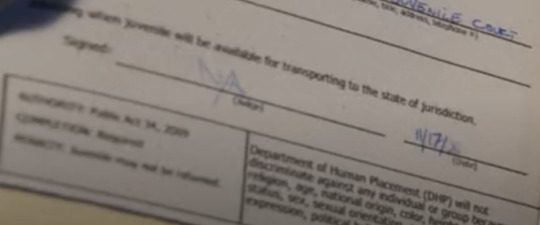
Here you see the person signed their name as Not Available and listed the date as 11/17/X. Since I'm assuming this was signed relatively recently, we can assume that this film takes place in either November or December (depends how long it took for the documents took to be processed)
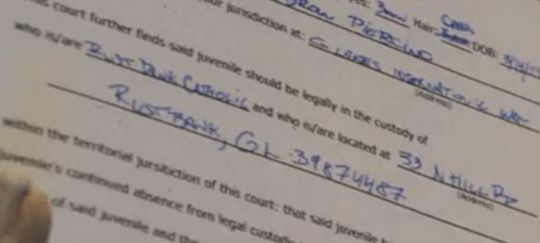
Rust Banks Catholic schools street address, but I'm having a hard time reading it- 33 N. Hill Dr. Rust Bank, GL 39874487-

If something is to happen with Kat, the documents says to notify Great Lakes Juvenile Court System
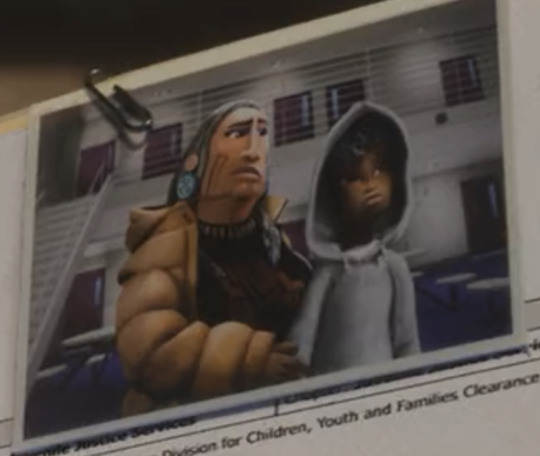
And finally, this sad picture of Kat in prison with Mrs. Hunter (who I believe to be Kat's social worker).
1K notes
·
View notes
Text
Wendell and Wild — Family!AU (Part III)
Ok part three yall let's go—
This finally brings us to the movie events in general.
Miss Elliot, out little ✨traumatised✨ child, goes to this Catholic school as a "second chance" she didn't even asked for. Especially when the adults were the ones that let her down. She was just fine in that Juvenile, then why...?
As we know, Wild fucked up and now him and Wendell are trapped. At least, until they find out who their Hellmaiden is.
They are confused at first. The kid, that human girl, she seemed familiar. But they brushed it off quickly enough, it wasn't important. Maybe it was just the cream doing a few mind tricks.
That night, with a little bit of power, they get into the human's dreams. Only for her to silently stare at them. Kat seems puzzled.
“Who... Who are you—?”
Hearing their names, she flinches. She remembered. She knows. And anger bubbles inside of her.
Those motherfuckers.
But she keeps silent. She listens to them instead. Because she doesn't even have the energy to scream or fight. It's been a long day.
But they notice. They notice her anger towards them, and how short her answers are. Well, maybe it's nothing, right?
It takes them a while to come to the realization that this is Kat.
Unlike in the movie, they actually are summoned right in front of her, meaning that they spend enough time together. She helps them get the hell out of that place without anyone noticing, and of course, they drag her into this mess. The moment she sees them in their human outfits, she can't help let out a giggle.
“Why are you two dressed like old men—?”
“Excuse you?! This is top quality for a mortician, mind you!”
And the moment they get up the carriage, Kat sees her life flash in front of eyes. These two drive like they're from New York.
“JESUS CHRIST. SLOW THE FUCK DOWN. PLEASE.”
“LANGUAGE, GIRL.”
The things the three of them do are... Questionable, at least in Kat's eyes.
Still, no matter how much they try to be friendly to her, she keeps them at arms length. And the brothers can't help but notice her body language. She's tense, and on guard every second.
That's when Wild notices her boombox. He knows for sure that was his brother's, or at least, it looks like it.
“Kiddo... Where's that thing from? Looks pretty nice.”
“...” She hesitates. Did they really not remember her? Why did he ask... “It's the only thing dad left behind.”
The carriage stops suddenly, and they look at her. No. It can't be.
“... Calamity?”
She holds back her tears as she grips on her boombox, looking down.
“Kid, please tell me it isn't true.” Wendell begs, not having the courage to touch her, not like this. “Please tell me it isn't—”
“Why did you leave me...?”
Wild jumps out of the carriage to take a moment while Wendell looks at the teenage girl in disbelief. Not only is their brother dead, but their niece has been through what they could call a hellish situation. Neither could even begin to think what she's been through, not in a system like this.
So, they stop for a moment. And they talk. They explain how they didn't mean to leave her behind, how they wish they knew, but that things with her grandfather became difficult for years.
“... Does he know I exist?”
“No... And it might be better that way.”
She feels anger still, but it kinda calms her down knowing it wasn't on purpose.
Then they proceed to accidentally get into whatever is going on with the rich people in Rust Banks. Kat opens up a little, showing a chaotic side of her. She's having the time of her life. She felt a bit bad at Father Bests' murder, though.
But soon, well, the brothers end up in quite the mess. Hypnosis, by a "back from the dead" Father Bests.
And that's when not only Raul and Helley finally caught up to Kat, who was desperately trying to get the brothers back, but, well...
Belzer wakes up also.
#wendell and wild#wendell & wild#wendell and wild au#Family!AU#wendell#wild#buffalo belzer#kat elliot#kat wendell and wild#Wendell and Wild headcanons#Wendell and Wild headcanon
39 notes
·
View notes
Text
Something I’d like to see in a Wendell & Wild Christmas special.
Wendell and Wild deciding to steal everything Christmas related at Rust Bank Catholic Grinch-style (for some reason).
Wendell would be dressed as Santa and Wild and Sparkplug would be dressed as Reindeer.
#Wendell and Wild#wendell & wild#christmas#henry selick#wendell & wild kat#Merry Christmas#How The Grinch Stole Christmas
13 notes
·
View notes
Text
Henry Selick on Wendell & Wild, Collaborating with Jordan Peele, Making Supernatural Social Commentary, and More | Interviews
Henry Selick on Wendell & Wild, Collaborating with Jordan Peele, Making Supernatural Social Commentary, and More | Interviews
The dark horror-comedy tells the story of 13-year-old Kat Elliot (Lyric Ross), a rebellious gothic orphan attending an all-girls Catholic school close to her burned-down hometown Rust Banks where she suffered the loss of her parents. Through supernatural circumstances, Kat finds herself becoming a hell maiden to two scheming demon brothers Wendell (Keegan Michael Key) and Wild (Jordan Peele), who…
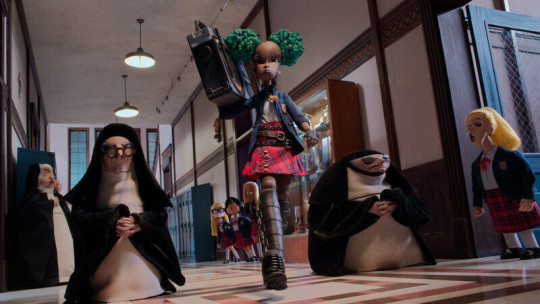
View On WordPress
0 notes
Text
Henry Selick on Wendell & Wild, Collaborating with Jordan Peele, Making Supernatural Social Commentary, and More | Interviews
Henry Selick on Wendell & Wild, Collaborating with Jordan Peele, Making Supernatural Social Commentary, and More | Interviews
The dark horror-comedy tells the story of 13-year-old Kat Elliot (Lyric Ross), a rebellious gothic orphan attending an all-girls Catholic school close to her burned-down hometown Rust Banks where she suffered the loss of her parents. Through supernatural circumstances, Kat finds herself becoming a hell maiden to two scheming demon brothers Wendell (Keegan Michael Key) and Wild (Jordan Peele), who…
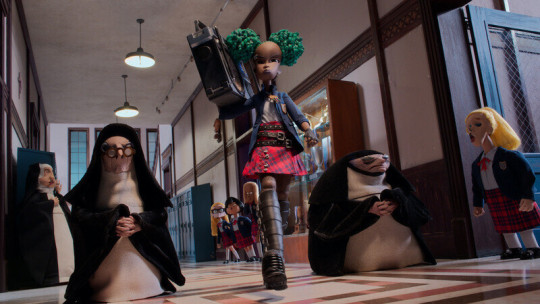
View On WordPress
0 notes
Text
I said I wouldn’t do it, but here I am, posting another chapter of Generations!
Please understand that this draft is, while scanned for typos and basic coherency, a genuine “rough” draft - what a block sketch is to the final painting.
If you’re enjoying these and want more, please also know that I am putty in the hands of praise and feedback.
(Chapter One here.)
Chapter Two
Meadowlark Farm stretched across four sections in central Kansas, more than two thousand acres of plains, rolling hills, riverbanks, stubborn cottonwoods, irregular ponds, and the occasional dense stands of timber. The old family farmhouse stood close to the middle of the property, near what had once been a river but was now a seasonal creek, in a particularly fine grove of cottonwoods. In high summer, the waxy leaves shimmered wildly in the slightest breeze, like a flock of dragonflies or a shoal of fleeing fish.
The house itself rested against a little rise in the land, looking out sedately over the fields, with one basement corner, the original cellar, built into the hill. Two ancient limestone fenceposts still marked the end of the patchy gravel driveway, half taken over by dandelions. Huge clumps of pampas grass marked the rutted drive. The house rested easily in the shade of tall elms and cottonwoods. Part of the original limestone foundation remained, ringing three corners of the original square ground floor. Seen from the side, where the driveway ended in a field of stubby buffalo grass, it looked regular enough, a typical nineteenth and twentieth century farmhouse in peeling white paint. Walking around the curving front porch revealed an extra wing, built on at a diagonal angle, which stuck out like an injured bird testing the wind with its good wing. The attic, a huge airy room above the original second floor, winked back at the sun with many small square windows.
Back of the house, in the triangle between the west-facing end of the house the northward-thrusting angle of thew the new wing - over a hundred years old and still it remained, in family parlance, "the new wing" - a little kitchen garden grew half-wild. Wide, smooth stepping stones marked the short path from screen door to the little plot.
Beyond the new wing, in the true backyard, children's playground equipment dotted the slope. Mismatched swings hanging from chains and ropes attached to rusting A-frames and weathered wooden beams swung gently in the perpetual Kansas breezes. Slides and monkey bars glinted in the hot sun. Chickenwire separated the play area from an enormous rectangular garden, already overflowing with produce, heavily over-planted, and exuding fragrant herb smells with every gusty breeze. The land ran down a gentle hill towards a dense growth of timber and a long, enormous pond.
Not too near the pond, several mismatched outbuildings hunched in what could not quite be called a cluster. Like a crowd trying to pretend it is not a crowd, each person too embarrassed to stand too close to anyone else, they held a swath of ground to themselves. A huge, two story barn with its paint long gone, worn to a brownish grey. A nearly shiny Morton building, not quite new but startlingly contemporary. A hay shelter, with rusted slanted roof. A skeleton barn, with just a few peeling boards left here and there, it's empty roof frame stretching over antique machinery. And a solid, unremarkable little shed, red boards dulled to maroon, covered in a patched roof of mismatched shingles topped with an enormous handmade antenna. The double front doors stood ajar and a solid-looking padlock hung from the wide-open latch, hanging casually open.
Beyond the swings, the big garden, the outbuildings, and the pond, the land fell sharply away to a creek bed. It was low in this high, dry summer, and nearly still. The banks, crumbled where the grass gave way to clay, ran with little wavering along the crease where hill met plain, until they met the little woods to the east. Cropland stretched out beyond the creek to the north. Near the trees, but enough to be shaded by them except in earliest morning, just on the north side of the river, lay the old family burial ground.
It had not always been meticulously tended, but in Leah's lifetime the oldest headstones had been somewhat restored, the most egregious weeds removed, and this summer, even the grass had been recently mowed.
Anna-Lucia knelt at her mother's headstone. Martha Addison, beloved wife, mother, sister. May 8 2005 - August 15, 2070. RIP Et Lux perpetua luceat eia.
The thick granite headstone with its neatly cut, clear letters stood in line with several others, some so weathered and faded as to be hardly legible. After a moment, hand resting on the sun-hot granite, Anna-Lucia sat down and crossed her legs, shoulders slumped, hands folded in her lap. A few brown rosary beads hung between her fingers, but her mind had drifted into wind and dappled light and the hum of insects and the sound the tall grass made bowing again and again to itself in the gentle, incessant breeze. Time passed but she did not know it. Then -
"Here you are!"
Anna-Lucia started badly as a sun-blind silhouette loomed over and dropped down suddenly, throwing two strong arms around her shoulders.
Dazed from the bright light and her unintentional reverie, it took Anna-Lucia several stunned seconds to process the small hands with many rings, the flyaway, unevenly cut dark blonde curls, the lavender perfume.
"Liza!" she gasped out at last, returning the hug.
In the sixteen months since she had seen her sister, Liza's choppy curls had grown irregularly long. Her wiry arms were sun browned and stronger than ever.
"Oh, I have missed you, little sister," Liza sighed affectionately, giving her one last squeeze and sitting back, stretching out like a cat on the warm prickly grass. It was an old joke between them; Liza, the eldest, was as petite and youthful as their mother had been; Anna-Lucia had her father's bigger bones and had nearly always been mistaken as the oldest.
Trying to shake off the sun-daze and afternoon grogginess, Anna-Lucia found she had no words - just a huge, cheek-splitting grin, and a few irrepresible tears in the corner of her eyes. She gripped Liza's shoulder and squeezed. Liza smiled back, but her eyes were tired and new care lines were etched there.
"You didn't tell me you were coming," Anna-Lucia said at last, when the silence had stretched so long it began almost to feel like another dream.
"No one knew. Not even me, until forty-eight hours ago. I fully expected to miss this year's reunion and be stuck on the beat 'til Christmas."
"Lots to report in Rome?"
"I've hardly been there - they send me all over the EU. That's the great thing about this job. Catholicity is a small operation with big dreams. I'm really the only full-time culture reporter they've got, so I have my pick of assignments. There's enough for three of me and three Giovannis besides."
"I still can't believe they get away that name."
Liza grinned wickedly. "Oh it's caused a few misunderstandings, but the reporter credentials, and the kinds of bylines I'm racking up, set them straight pretty fast."
"I hardly know anything about your job - you've sent three letters, Liza. Three, in a year and a half."
"Sixteen months, thank you very much." Liza hesitated. "It's - changing, over there. Letters aren't as... in vogue as they used to be."
Anna-Lucia looked at her sharply. "You're joking." She took a deep breath, closed her eyes, pushing away the lingering brain fog and reminding herself she was still not certain what privacy remained at home. Take nothing for granted. "I mean, nothing's more fashionable than retro, right? Where would the elite be if not at the height of fashion?"
Liza shrugged, an airy show of unconcern belied by the downturned corners of her mouth, as she reached into her bag, tossed carelessly on the ground next to her. "Whatever fires their rockets, I guess. It's pages, now. Personal pages to orally deliver messages."
Anna-Lucia felt inside, somewhere, that this was more important than she grasped, than her sister let on, but the sun had been slowly cooking her for more than an hour and Liza was pulling out of her carelessly dropped bag a thick wad of cream-colored envelopes addressed in a trailing scrawl she knew very well.
Her heart leapt. "You saw him!"
Liza shook her head, and she was pale under her tan. "These came through the postal service."
Not, Anna-Lucia registered distantly, the post office.
"That's how I found you out here, actually. I got in not twenty minutes ago and went in looking for Dad, and Grandma immediately sent me out here." Her eyes conveyed that Leah had warned her, too, they could not speak completely freely in the house. "These are all addressed to him."
Anna-Lucia stared at her. "Just to Dad? Not even one for me? Or you?"
"I tried to tell you." Liza held out the letters. "Check the dates." Swiftly, Anna-Lucia tugged the rubber bands off the thick stack and they uncompressed in her hands, spilling over her lap. Each was labeled, F1sh, followed by a string of numbers she recognized as an encoding of month, year, and - something she couldn't decipher. Location, probably.
"A year ago? The most recent one is twelve months old?"
"One's only seven."
"You've read them?"
Liza frowned at her. "I take my job seriously, Anna-Lucia."
"I'm sorry. Stupid question." Mechanically, Anna-Lucia gathered the letters back up and rebound them. "So you've had no news."
Liza just looked at her.
Understanding began to dawn, and Anna-Lucia did not like it. "That's why you came home."
"We need Uncle Kevin's address book."
"No news at all? Seven months and nothing? Not a single person knows where he is or what happened to him?"
"Will you help me find Dad?" Liza pleaded, glancing down at her watch, a slim, chic, old fashioned ladies' analog. "He needed these... yesterday."
Anna-Lucia felt as unmovable as the headstones beside her.
"Please, Anna-Lucia. I don't... I can't tell him alone."
Liza stood and held out a hand. Anna-Lucia grasped it and was hauled to her feet, stiff, half-asleep limbs complaining and uncooperative. She heaved a deep breath, involuntarily, as if she'd been swimming underwater. Their little brother had been missing for at least seven months, and no one had heard a thing.
"Dad's in the new shed."
11 notes
·
View notes
Text
Buried Treasures Of Cincinnati, Part II
What is it about the soggy bottoms of the Mill Creek that attract legends of buried treasure?
According to the Cincinnati Enquirer [22 December 1890], residents of the remote reaches of Gest Street reported decades of annual visits by a Christmas ghost, supposedly guarding the loot from a long ago bank robbery. The desperados got away with more than $300,000 and a fine clock from the bank president’s office. The money was never found, but some kids found a fancy clock in the Mill Creek muck and rumors spread that the cash must be located nearby. That’s when the ghost made its appearance, on a decidedly peculiar schedule:
“It is a matter of fact that many people living in that portion of the city have stoutly claimed to have seen the ghost, which they describe as of many shapes. The singular thing is that it never appears except on Christmas or a few days before.”
Years before, the Enquirer [31 July 1876] reported that a copper kettle full of gold coins was buried 15 feet deep in the muddy banks of the Mill Creek.
“Tradition is not quite clear as to who sunk the kettle of money in the earth many years ago. One story goes that it was a street contractor. Another version declares that the money belonged to a boot-black who won it by betting on base-ball. Still another tale tells is that it was a single deposit of an enterprising street-car conductor, who suddenly became wealthy, and hardly knew how it happened.”
The Enquirer reported that treasure hunters in 1876 employed divining rods and double-distilled bourbon in their fruitless quest for the elusive kettle.
Legends of buried treasure around these parts are often associated with some of the notable scalawags who passed through over the years. When Confederate General John Hunt Morgan led his Raiders through Indiana and Ohio, it is reported, many of the townsfolk ahead of his guerilla band buried household goods for safekeeping. Some of these hoards were never recovered, or forgotten, leading later generations to excavate farms around Harrison and Glendale.
Simon Girty, the renegade, terrorized the Ohio country in the early days of settlement. Son of a white settler who traded with the Native Americans, Girty joined forces with the British and encouraged Indian attacks on American settlers and United States Army posts. The tale was told that Girty stashed a good-sized chest of soldier gold somewhere near Newtown. Despite occasional searches, Girty’s gold has remained a myth.
Prohibition bootlegger Ulderico DeLuca spent enough time in Cincinnati before his 1926 arrest that the United States Treasury sent a team to Cincinnati looking for buried evidence of his ill-gotten gains. Along with his accomplices, DeLuca ran an alcohol-smuggling ring under the Pacific Fruit & Produce Company name as a cover for the Cleveland mob. The feds found nothing, but nosy residents kept digging.

Almost any place in Cincinnati is a candidate for treasure hunting. Today, the erstwhile intersection of Fifth and John Streets lies under a tangle of exits near an I-75 exit. In 1920, however, an excavation there sparked lots of rumors based on faded memories of days gone by. The 1920 excavation, according to the Cincinnati Post [12 June 1920], cleared a plot of land on which a garage was to be built.
“The lot, which many years ago was a Quaker cemetery, was famous as a beer garden in the seventies. Workmen, it was reported, had found 18 gallons of wine in a beer vault six feet underground.”
Rumors of additional finds brought gangs of treasure hunters around, to be chased off by a surly foreman.
The multitude of richly decorated churches in the Cincinnati area proved irresistible to a thief named Ray Marsden. From around 1915 through the 1920s, Marsden pilfered gold and jewels from many local houses of worship, stashing his plunder in the most unusual locations. Marsden told detectives to locate an old abandoned automobile, rusting on the banks of the Licking River. Inside, they found a gold monstrance stolen from Covington’s St. Benedict Church.
Most of the golden decorations Marsden heisted, he said, were melted down at a Cincinnati refinery and stashed throughout the city. It is probably wise to take Marsden’s claim with some suspicion, however. In August 1927, Marsden led three police officers and a prison guard on a tour of upstate New York, claiming he would reveal a cache of 100 golden chalices stolen from Catholic and Episcopal churches in Ohio. The loot was never found and Marsden was shipped back to the Ohio Penitentiary.
Claims by fortune tellers are also worth some extra scrutiny as Fred Lamparth discovered in 1897. Mr. Lamparth wanted to buy a saloon, so he asked a “Mrs. Wendel,” who told fortunes on Ninth Street, for advice. As reported in the Cincinnati Post [25 March 1897]:
“Lamparth alleges that Mrs. Wendel told him that she knew where a big amount of treasure was buried in the hills of Kentucky, five miles back from Cincinnati. According to Lamparth’s story the treasure was said to be buried on the farm of a widow, and that years ago two men went to seek the hidden gold, and upon opening the earth, fire burst forth and killed them both.”
Mrs. Wendel offered to send away to England for a magnetic machine to safely uncover this gold, if only he would invest $150. He came up with the funds, but was surprised to discover that Mrs. Wendel was reluctant to give his money back, even though she never produced the treasure-hunting machine..
The first installment of buried treasure reports in Cincinnati appears here.
5 notes
·
View notes
Text
DID SHE REGRET IT?
My sweet grandbaby... My, how you’ve grown so much all these years. You know, your brother Lark asked me whether I regretted anything in my life, Starla. Your daddy shushed him and made him apologise - but it got me thinking. And I figured that I should tell you and your girlfriend a secret. You can’t tell anyone any of this; not your mom, not your dad, nobody. Especially not your grandaddy dear. You aren’t the first woman in this family to prefer female companionship. You aren’t the first girl in your lineage to fall in love with another woman.
When I was a young girl, about 13, I noticed differences in me and the other girls I played and worked with. While they were quiet, polite, yet a bit petty - I was energetic. When I had time to myself - which wasn’t often as anyone who grew up on a farm knew - I would sneak off to the forest, a knife my father had long forgotten he’d lost in my skirt, and when I got to a certain tree I’d marked - about a half a mile from my home - I’d tuck my dress into my bloomers and climb up to the first branch large enough to hold my weight, and there I would find a pair of trousers I’d sewn with scraps. Some parts were leather, some linen, but it was a comfortable pair of pants nonetheless. I’d change into them, and twist my braid into a knot, and from there I would scale the trees. I’d made a makeshift slingshot, and would pick up the acorns on the floor of the forest and shoot at the squirrels and birds. I’d have such fun by myself, playing and running through the leaves. I’d eat the blueberries that grew fat and juicy on the bushes, and found an excellent cover for myself; I’d tell my family that I was going to go and pick blueberries! I’d bring back an entire basketfull, and my mother would make such delicious tarts and pies from them.
She’d share them with the neighboring farms on Sundays, when everyone trekked two miles to the little wooden Catholic church, and enjoyed a lunch together before returning home. There was such a lack of sweet things around, it made us quite popular. She’d always give me credit for finding such delicious berries, and I’d stand next to her beaming with my lips still tinted purple - then the Reverend would scold me for my lack of humility and gesture to his own daughter, Gloria, and - hypocritically - point out how ladylike and humble she was standing by her own mother and holding her youngest brother while her mother and older brother ladled venison stew into bowls.
Gloria was very much a lady, even at 13. She was very pretty too. She had angelic golden curls that trailed down to her back should she let it fall out of her bun or her braid, and skin like a porcelain doll. And her eyes… The most beautiful eyes I have ever known. Even though it was the hot, heavy summer, when you looked into her eyes you couldn’t help but feel as if you were floating in a cool pond. They were a greenish-blue, and sparkled like sunlight on a brook at midday. Even her voice - when you heard her in church or when she worked away at her milking and sewing and churning - was so majestic and sweet that every time I heard it I would swoon and try desperately to not let the others notice.
That was when I realized that I was not quite like the other girls. They would gasp and envy Gloria’s beauty, but none of them adored it in the way I did. I did not dare tell anyone my thoughts of Gloria, and when a young man in the town began to make excuses to be around her and paid attentions to her, I became incredibly jealous. And one day, he gave her a wooden rabbit he’d whittled himself, I became so jealous that at the first opportunity I ran to my tree and - in my jealousy - whittled an army of rabbits. I must have made about twenty of them! And the next day I decided that I wanted to be her closest, dearest friend, then I should do something about it!
So in the following weeks I made sure to speak with her and work with her and play with her as often as possible. It wasn’t particularly difficult to do; she was the Reverend’s daughter, and those who weren’t intimidated by the possibility of making a mistake in front of him were too intimidated by Gloria’s skill and beauty. But I wasn’t afraid; I was inspired by her. And by the following year, we were the best of friends.
I found that Gloria wasn’t as angelic as I’d previously thought - but also that she was even better than I’d imagined. She chewed her nails, snuck kittens into her room, and every once in awhile, when we were sure that we were alone, we’d curse and giggle as we did so. And one day, I decided we were close enough that I would show her my tree.
She was impressed when I introduced her to my tall, strong, oaken friend, and she smiled with wide eyes when I whispered to her that I’d been storing a pair of trousers I’d made myself up on the first branch. But something odd happened when I bashfully showed her my wooden rabbits.
She blushed.
She blushed so much that I feared she’d gotten sunsick.
But with a trembling hand she plucked a wooden bunny from my hand and clasped it against her chest, looking down at it with her mouth agape.
I myself found my own mouth to be dry and warm, and my hands shaky, and my eyes unable to blink or close.
“You… You made this for me?”, she asked quietly, “All of these?”
I nodded, my breath coming out shaky and my chest feeling like I’d been squeezed between two walls.
She threw her arm around me in a tight hug, one hand still firmly grasping the rabbit, and nestled her chin in the crook of my neck. Despite the shock and glee, I somehow managed to lift my arms and hug her back.
And Starla?
I kissed the Reverend’s daughter. And I don’t regret it at all.
We snuck away as often as we could without arousing suspicion, and as we grew older, we fell in love. We knew there was no way for us to be together, nor stay together, so we held onto each other for as long as we could.
The boy who’d paid such attention to Gloria this whole time, James, eventually proposed to her when we were about 18. She smiled and accepted graciously, as she’d always been taught to do, and within the year he had whisked her away to a city in the East. Boston, I was told by her mother and father.
And when my dear Theodore came for me, we did the same. He brought me to New York, and it was full of exciting things I’d never thought of before. Everything was plain and bright color and flavor and sights were very seldom seen when I was from, and I was enraptured by this beautiful city. Theo had a job at a bank, and we held an apartment on the fifth floor of a building near his firm. I swear to you honey that I have loved - and still do love - my husband. I love him just as I loved Gloria, I tell you truthfully. When I was 19 we had our first child, a boy we named Harold - your daddy. We began to search for a house. We not-so-swiftly found a fairly nice, almost affordable house by the shore, close enough that our boy - and in the future, the rest of our children - could play in the water and build sandcastles and chase seagulls. It would be a grand place to raise our family. And it was there that I found something I feel guilty for finding, but am not ashamed of.
As I sat on the beach with my Harry in my arms and in my bathing suit, a coat draped over my legs, who should appear other than a golden-curled woman about the same age as myself, with a pair of little twin girls in a stroller. I stared at her, unsure of what I was seeing. She laid out a blanket and set her cooing children down upon up, and held them up and she sat between them.
We sat in silence for what felt like years. The cool sea spray and the salty air felt heavy, and when the tide touched the bottoms of my feet it felt like rust raking at me. And in that wilting ageless moment, it occurred to me that she was trying to speak to me - but the words would not come out. She pressed her babies to her side, and I my son to my chest, and finally she forced out a sentence in one fluid, viscous pop.
“Hello, Pearl”, she said with a shaky, nervous voice.
She was afraid. Afraid to talk to me. And I of course, knew why.
We hadn’t forgotten each other. How could we? We were our first loves! We explored the forest together! We rebelled against the tight societal grip of our fathers and families together!
And yet, despite all that, it was an ugly moment. The bright sunny day on the beach turned into a cold and grey one. The soothing wash of the water and the calls of the seagulls turned into something out of a Mary Shelley novel. There was no comfort here but the glowing warmth of my baby. Even Gloria seemed to be terrifying in that moment. Golden curls, now shorn to the fashionable length of the day and pinned carefully under a cashmere cap, were green by the dim light of the glowering ocean. The pink flowers embroidered on her cardigan looked more like bloody spots to me, and even her trim figure held fearful thoughts for me; not because something about her body held the same imagery as the rest of her adornments, but because she was still - despite the ghastly visions - so very lovely and soft, and my hand ached to caress her shoulder once more.
But I did not move. I clung to my child and held back tears.
“Hello, Gloria”, I replied, a globule of agitation mucking up the words and coming out as if it were my father’s tobacco-worn voice instead of mine.
We sat in more silence, and instead of the grey-shaded appearance fading, I simply became numb to all sensation except my hands crossed over Harry.
I looked down at my son, sitting there upon my knee. He was my world now, and what a wondrous and beautiful world it was. I had a new love, a true absolute love; a love that I could show the rest of New York and hang on his arm and smile and wave to his coworkers at parties and in restaurants. I could never do that with Gloria.
And despite my mind and heart screaming at me to pick up my little world and leave, I stayed. And eventually, the darkness did fade.
Only when Gloria turned her head to me, the locks of gold that fell from under her cap bouncing with the same youth they’d had when we were children, and she smiled at me.
I melted.
The beach’s color returned, and the air felt good and comforting, and the tide tickled instead of burning.
“Your son is just as beautiful as I would expect from you, Pearl”, she said with a bell-like laugh.
I can’t say what caused the sudden change in her mood, but that made my stomach flood with joy, and I laughed with her.
“Oh, Gloria; Harold looks much more like his father, Theodore, to me! Why, just look at those cute little freckles”, I giggled.
“Come now Pearlie, look at your son’s face; he’s got the same warm, friendly, chocolate-colored eyes. His hair is just like yours, too! He can’t be more than - what, four months old? Yet he’s got a thick and full head of soft, dark, brown hair!”, Gloria replied, apparently bemused.
Then she put a twin in the middle of her legs and when she was sure she was situated so as to be held up by her mother’s stomach, Gloria reached a hand out and stroked my hair, which i’d pinned my bangs back with a seashell barrette, and traced the lines of the shell with her finger.
“I do so wish you’d kept your hair long; it was so beautiful…”, Gloria said, trailing off.
My heart skipped a beat.
“I-I changed it with the times. Long hair isn’t exactly in chic these days”, I replied, trying to hide how flustered I was. I imagine my bright red cheeks were giving me away.
Gloria retracted her hand and smoothed the daughter on her lap’s head with it instead.
“This is Lisette, and this”, she gestured to the twin sitting on the blanket with her arm propping her up,”is Claire”, she said proudly but a bit sadly.
“Oh my, what beautiful girls you have! They look just like you, right down to the curls!”, I exclaimed.
She smiled humbly.
“Not quite. They’ve got their father’s hair; he’s a bit more of a redhead than I am. I hope they don’t get teased too much when they’re older…”, she explained.
“I’m sure they won’t, dear. They’re lovely girls”, I replied.
We went on like this for an hour, and did a grand job of ignoring our past for the most part. To passers by, I am sure were simply looked like a pair of close friends catching up on each other.
But five minutes later our lives would change forever.
Gloria invited me and Harold to her home for lunch. It wasn’t far, we could even walk there instead of hailing a cab - which, at lunch hour, would be nearly impossible. So I threw on my sundress, and Gloria buttoned her cardigan and pulled up her skirt, and we plucked up our babies and walked down to the East Village. I was surprised to see that she had also gotten married to a successful businessman, but not surprised to see that she had married well. Gloria was no fool, and the Reverend would never give her away to someone who wouldn’t be 100% sure to provide for her and their family.
Teddy and I ourselves lived - and still live - in a smaller yet still very beautiful estate by the water. When we’d moved out of the apartment - Teddy had been promoted and given a substantial bonus - it was hard to sleep with all the noise from the boats, though Harold had no problems at all funnily enough. We’d gotten a maid to clean, but I insisted upon cooking and gardening, and absolutely refused to agree to getting a nanny for our son. No one was going to raise my children but me and my husband. We lived very well, never wanted for much, never went to bed hungry - until the Depression of course - but all of that paled in comparison to Gloria.
Her home was enormous, and absolutely beautiful. From the Roman-revival style skylight in the den, to the luxurious pool-styled bath, to the five bedrooms with plush beds and the pleasant scent of Gloria’s perfume in each room, floating through the air and settling on everything in them. If you held the comforters, you could almost imagine you holding her herself.
Gorgeous flowers and exotic plants grew in stone pots around the house, and in the middle of the den was a handsome pale pink rhododendron in a white marble planter box.
“I haven’t planned much for lunch, I’m afraid. Please, sit down in the dining room, and I’ll find us something to eat”, Gloria said with a wave of her wrist as she headed off to the kitchen after placing her babies in a pair of highchairs.
I held onto Harold with wide eyes as he gurgled unabashedly and clapped his fat little hands. I was afraid to so much as touch the chair I sat upon. It all looked so expensive and lavish!
Yet when she came back, all she brought was a tray of cucumber finger-sandwiches and a pot of tea.
The placed a cup and saucer in front of me and tipped the pot almost to the point of pouring and turned her face to me.
“Would you like some tea with your sandwiches? It’s jasmine - all the way from China!”, she asked gleefully.
I simply nodded, still shocked.
She sat down at the head of the table and poured herself a cup of tea before taking a cheese sandwich.
She sighed heavily.
“Pearl, do you remember when we were girls?”, she asked me, her face growing serious.
“Which part do you mean?”, I asked, trying my best to be nonchalant and taking another bite of my sandwich.
“Well… You know… All the fun we used to have?”
“You mean like the tree?”, I said teasingly.
“No… I mean… Oh come on, you know!”
I sighed.
“Yes, Gloria; I know. I could never forget. It meant too much to me… You meant too much to me.”
The room fell silent aside from the quiet sound of the china tapping together.
“We can’t go back, Gloria. We have families. Husbands. I’m happy with Theodore; I’m in love with Theodore.”
“Well, I’m happy for you Pearl; but I’m miserable”, Gloria replied with a shaky voice.
I set my cup back on the saucer.
“Oh Gloria�� Don’t say that… Look at your girls! Don’t you love them?”, I asked her, seconds from reaching for her and holding her tight.
“Of course I love them; but I don’t love my husband!”, she replied in a hushed tone. I quickly looked about the room in fear of someone overhearing our conversation.
“What do you mean you don’t love your husband?! You married him; you conceived two children with him-”
“And I’ve conceived one more, too”, she said grimly.
An involuntary smile crossed my face.
“Oh Gloria! You’re pregnant? That’s wonderful!”, I told her out of reflex.
“Oh Pearl… I’m trying to tell you that it’s not wonderful”, Gloria sighed and pushed herself away from the table, standing up and turning towards the window in the sunroom,”I don’t want to have any more babies. I don’t want to be married to my husband. I don’t want this life”, she said wistfully, holding onto the pale daffodil-colored curtains and threading her fingers through the holes in the lace of it.
I sat silently, not looking at her, but staring at the swirling tea in my cup. How could I know what to say? I was happy. It was different of course than when I was with her, but it was just as good and warm and happy.
So I sighed. I looked up at her and took a deep breath and tried to talk sense into her.
“Gloria…”, I started with a voice we had always described as “the be reasonable”-tone, setting my cup back on the saucer again.
But - without warning - just as the ceramic cup settled back on its little plate with a gentle ‘tink’, Gloria ripped the curtain from its rod with a sudden burst of unfiltered loathing.
Her hand still threaded through the curtain, she sunk to the ground with it, and began to cry.
I immediately shot up in my chair and my mouth went dry. Even though I’d known her for nearly 15 years, I had no foggy notions as to what to do about this juncture; A grown woman, married almost 5 years, 25 years of age, laying on the ground after an explosive malfunction of mind and character like a young Hollywoodland starlet - imagine!
So I began by calling out to the maids to hurry to us and repair the curtain, asked that someone look after the children and let them play with each other in the twins’ room, and helped the sobbing Gloria to the master bedroom.
After setting her down on the ottoman and shutting the door - taking care to lock it, just in case there were any busybodies employed in the house - I rushed back to her and sat on my knees and grabbed her right hand with my left and pulled the handkerchief from my brassier with my right.
“Please Gloria, oh please don’t cry”, I pleaded with her.
But her tears did not cease, not that I expected them to.
“I just don’t know what to do!”, Gloria blubbered in between gasps for air.
I did not know what to do either, I’m afraid. So I simply climbed up onto the ottoman myself, pressed beside her, and rested her head on my shoulder. I stroked her hair and waited for her to cry herself out. It’s a good thing I was at the beach earlier, or I’d have a hard time explaining the wet spots all over my sundress.
At long last Gloria went quiet, and her breathing - while still shaky and without rhythm - slowed to an almost predictable pace. She pulled her face away from my chest and looked into my eyes with an expression I can only describe as fear-based exhaustion.
Even though they were bleary and red from her episode, they were still such a breathtaking shade of aquamarine.
And so the Reverend’s daughter kissed me.
And I still don’t regret it.
I wouldn’t quite call what we had an affair. I made it clear to her that though she was my first love, my heart was my husband’s first and foremost. But we became close once more, and would spend the heavy afternoons that summer together with our children. Occasionally our husbands would join us - I suspect purely to see what on earth it was that we were doing that was so captivating that we were excited to spend the days with each other - and we did our best not to create an air of awkward tension; but it was largely just us.
And three years later, when our children were old enough to walk and talk, we made a discovery.
Well, to be completely honest, it was Gloria’s discovery. I was simply the second person to learn about it.
We discovered the poet Sappho.
Suddenly, our world bloomed with violets. We learned of the poetry of women in love with women, and that deep magic of something both societally wrong - in most folks eyes - but internally right blossomed in our stomachs as we realized with sparking glee that we weren’t alone. That other women - many other women - felt the way we did. I began to embroider all of my handkerchiefs with little violets. I planted a pot full of African violets the first opportunity I had to purchase a live plant. I even named the daughter I was pregnant with at the time just that - your auntie Violet. My perfume, my favorite pair of gloves, my spring jacket - I was obsessed! Grampa boiled it down to a new trend or me developing my own personal style. It was better that way, honestly.
But Gloria took it one step further. She began to look closely for violets on the women around her. High society women such as herself often had more distinguished, obscure tastes. She was certain that someone, somewhere in New York knew the meaning behind those lovely little purple flowers. And, indeed someone did. Six “someones”, as a matter of fact.
That was the beginning of the Sapphire Ladies Club.
Gloria wanted a place for us to talk safely about our innermost thoughts and secrets. She wanted a safe-haven for all women who felt as we did, lesbians and bisexuals alike.
It was 1924 when the first meeting came to order. Most of us were shaky, nervous about if we could trust the others or not. She’d rounded up any women she’d found at functions and parties and even strolling along the sidewalk displaying violets - which I thought was a bit dangerous to do. After all, not every woman wearing violets would know its hidden meaning. She’d ask “So, why violets dear?”, and if they seemed surprised or shy about it, she’d tell them she was putting together a little social club for women who simply adored flowers - specifically violets. She’d tell them that in addition to chatting about flowers and housekeeping, we’d do a bit of reading from poets like the Bard, Dickinson… Sappho. And sometimes their eyes would flicker with recognition at that. They’d say “I’ll consider it. Is there are set time and place for this? Oh, good! I’ll check my schedule and get back to you. What is your address may I ask? Your name is Gloria, correct?”, and she’d give them answers in her gentlest most lovely voice.
Of course, such a lovely woman talking to a woman with our kind of secret was sure to pull them in.
And so we had our little social club. The first meeting was awkward; we shook trembling hands, and tried desperately to stay warm and compassionate as we attempted to coax the ladies out of their shells. It was near impossible to convince them to talk - after all, we were practically strangers, and this could be a trap!
But finally, after Gloria told our story, one woman named Hannah spoke up. She was a fashionable woman about 28 in a green dress, her hair was a beautiful dark brown coiffed perfectly, and pinned into a curl was a barrette with a large cluster of violets.
“I’m Hannah Goldberg”, she started meekly.
Hers was the first story we learned. She’d always preferred the company of women to men, and while her friends had giggled and swooned over the boys in Hebrew class, she’d had her eyes set on a girl who always wore her hair in a long braid that was tied with a ribbon. When she’d met her husband, although for all intents and purposes they were courting, she thought of him more as a close friend than a potential spouse. She was pleased to learn that he was rather effeminate in his kisses and embraces, but it didn’t change the fact that he was no woman. By the time they got married, she admitted that she was very slowly falling in love with him - and soon after the birth of their first child - a son named Judah - she realized that her husband Jacob was completely different from the other men she knew. She revealed that her husband was gay, though he promised that he loved her.
It was quite the interesting, uplifting conversation that she divulged. He sat her down gently and confessed with a solemn, shameful expression that he was attracted to men, not women. And technically, not Hannah either.
But he grabbed her shoulders and swore up and down that he loved her, and not just familially - romantically. And as he waited with painful anxiety, beads of sweat climbing up and down locks of his thick hair, Hannah stared at him. She couldn’t tell if he was serious; she couldn’t tell if she should confess herself.
So she laughed.
She laughed and held his utterly confused face in her hands. She told him she felt the same way - only about women, not men - and that he was the only man she’s ever loved. They agreed that as long as they were being extremely careful about it, they could both fulfill that desire not accomplished by being with one another.
It was a good, happy ending for Hannah - but the next woman, Helen, was not so lucky.
Helen claimed attraction to both men and women, but due to the intensity of her family’s religion, and the strictness of her father, she was quite shy and quiet. She was a little wisp of a thing, with long, pale blonde hair that she let hang naturally about her shoulders. Her violet was a handmade broach, a single dried wild violet encased in enamel and placed in a plain, sterling silver frame.
She told us how she’d married young at 17, and though they tried, they simply could not get pregnant. Then, just a year ago, it finally happened. But two months before her due date, her husband died in a horrific accident at the construction yard he worked at. She had to support herself and her baby - she simply couldn’t go back to her family. She refused to have her child raised the same way she was. So she took a job as a live in maid and pinched pennies to saved up as much as she possibly could to support her daughter.
She was so much different than most of the women there. The lions’ share of us were well off, had husbands with good jobs, and could afford to go shopping whenever we pleased. Helen was obviously poor, even before she shared her story. She looked tired, with dark bags under her eyes that she tried to hide with makeup, and her hands were calloused and her nails trimmed short. Her dress was old and patched, and her shoes were the boots that we used to wear on the farm. Compared the the rest of us, we looked like we were in our Sunday best. She even had to bring her daughter, Lorelai, with her; there was no one else to take care of her.
Helen had come across Sappho when dusting off the library in her employer’s home. Something drew her to the book, whether it was the pleasing violet hue of the canvas cover, or the golden script across the binding, and she began to read it on her breaks. She connected with it on a spiritual level, and at that first hint of recognition, a feeling and thought she’d been pushing down deeply inside herself for so long began to rise again.
Over the course of five meetings, each woman told their story.
We learned to not be ashamed of ourselves, while also taking great care to be cautious and careful about it. They were the best group of friends I ever had, Starla. I miss them terribly. Some moved away, some lost touch, and some…
Remember that I said Gloria became obsessed with Sapphic imagery? Well. She also became obsessed with me.
Of course I loved her. But I loved my husband and my family more.
And then one day, while we enjoyed a pot of tea in her garden, she asked me to run away.
I simply stared at her, mouth agape.
“You can’t possibly be serious, Gloria!”, I gasped, perhaps a bit more rudely than I intended.
She frowned.
“Of course I am, Pearl; I love you, you love me. Let’s run away together. We can go to California - start a new life together. We can claim to be spinster sisters! We’ll live in a shack on the beach, and we’ll raise dogs for a living. You can collect sea shells, and I’ll make coffee every morning; and we’ll sit outside on the deck and watch the sun rise every day. It’ll be beautiful!”, she exclaimed with a starry look in her eye.
I froze. I didn’t know what to say, but I knew how I felt; and I felt horrible. With a gut-wrenching realization, I found that without meaning to, I’d led her on. I’d led her to believe that she was the one and only love of my life. I’d thought I’d made it clear that anything shared between us on a more than friendly basis was simply to satisfy her so she could live with her husband and children without going crazy. To scratch an itch if you will. But clearly, I wasn’t careful enough with her heart.
And that… That I regret.
“Gloria…”, I started, my voice cracking and breaking, unable to keep myself from letting my guilt turn to agonizing sorrow.
She must’ve realized what I was going to say, because she began to tear up.
“We can grow old together…”, she whispered.
“Gloria, I…”, I replied, matching her quiet, solemn tone.
“Please…”, she interrupted, almost whining like a dog.
“I… No”, I finally let out, unceremoniously.
“We can grow old together…”, she repeated.
“I can’t. I won’t.”
“We can grow old together!”, Gloria screamed.
I leaned back in my seat with a jolt.
“We can grow old together!”, she screamed again, shooting up and knocking her chair over, slamming her hands on the table with a bang.
I was terrified. I lifted my arm in front of myself in fear, and sure enough she struck me across my face. I lifted a hand to the slowly reddening patch on my cheek in shock, and looked at her with utter surprise. She had tears slithering like snakes down her scowling face. She was absolutely furious - not heartbroken, mind you. Furious.
And at that moment I realized something about Gloria. As beautiful and elegant as she was? She was not a good woman. She was selfish and spoiled and childish, and was never in love with me at all; she was simply attracted to the thought of gaining something forbidden and dangerous from me. She wanted me to run away with her to prove that I would do anything for her, and she drank devotion up like a coal miner does whiskey. She was addicted to the power being the object of someone’s affections - especially if that someone had something to lose from it. When we were children, she didn’t love me because I took the time to make her the herd of wooden rabbits; she loved that I made them despite the potential for risk it presented for me. She got angry when I said I wanted to spend time with my family - not simply spend time with my husband and children, but just my children. She became hysterical if I even mentioned wanting to do something for them instead of her. I took them to brunch on Sunday instead of her? She’d throw an absolute fit. She wasn’t a woman; she was a girl in a woman’s body.
All of these memories of her selfish reactions and anger and frustration at my wanting to spend time with anyone but her came rushing back to me with a sound like a hurricane in my ears, coming to a point as the red handprint on my cheek began to burn and sting.
She began to scream at me, but I couldn’t hear her. Everything moved in slow motion, from the curls on her head bouncing with every hysterically driven shake of her head, to the powerful jabbing motions she made with her pointer finger towards the door. Even as my body began to respond to her violent, frenzied demands for me to leave and get out of her sight, I still did not register what was happening. I was completely shocked, even when I returned home. Grandpa saw the handprint, which was now turning into a bright bruise she’d hit me that hard, and shouted for me to sit down on the davenport and he’d find me something cold to press against it. Your father stared at me with a face as pale as a ghost, and your aunt cried from the fuss. I simply sat without reacting, still in disbelief of what had happened.
I avoided the club for weeks after that. I avoided the beach, too. And the East Village. And the bookstore, the flower shop, even the grocery store - anywhere I thought Gloria might be.
Eventually, I ran into Hannah at a deli. It turned out that her father owned it, and Hannah had a job there on Mondays and Wednesdays. When she saw me, she didn’t smile, but her eyes widened. Not in disgust or any kind of fear or hatred, but rather the way one does when they’ve been gossiping about their misfortune, and have been caught doing so.
After I purchased my lunch, she yelled for someone to take over for her at the counter and untied her apron before walking over to me. She sat across from me at the little table, and I kept my eyes glued to the salami on a kaiser in the paper container in front of me.
“I’m so sorry Pearl…”, she said softly, her hand grasping my own with warm sympathy that melted the ice in my throat.
I was surprised; I expected to be met with disgust or betrayal. I expected Gloria to tell the club that what I’d done, with embellishments in her favor.
“What for?”, I asked, fearful of her answer.
Pearl seemed surprised at my ignorance.
“Haven’t you heard? Gloria was committed!”, she told me, the sympathy replaced by scandal.
The color drained from my lips, and it was my turn to be wide eyed. I covered my mouth with my free hand, afraid that all the breath in my lungs would escape with the blow to my chest that Hannah’s words carried.
“Committed?”, I said, half asking, half repeating.
“To the mental hospital on Roosevelt Island! Oh, it’s just awful. I’m so sorry”, she continued.
“What… What happened? Why was she committed?”, I asked her, my throat freezing over again and making my voice crack with icy horror.
“Apparently one day her husband returned to find that she’d… She’d done something simply awful. She’d taken up a knife and tried to kill one of the maids! Her children were home and everything! The police found them hiding in a cupboard together, trembling, and the twins hands covering the baby’s mouth so she wouldn’t cry! It’s just so unlike her to do something so monstrous!”, Hannah exclaimed, doing her best to keep her voice low so as to keep the conversation private.
I choked, my hand tightening over my mouth. My eyes watered as I imagined a frenzied Gloria going after a maid, her children crying in fear of their own mother.
“No… It’s just like her. She’s always had the temper of a beast. I never thought she’d do something… Something like this though”, I managed to squeeze through my tightened throat with a sob.
I needed to know though.
“What… What day did this happen, Hannah?”, I asked her through my gritted teeth.
“Ah… Tuesday last, I think”, she answered disheartenedly, catching on that I knew something about what happened I wasn’t telling.
I shivered. This was my fault. I drove her into her final descent into madness.
“Yes. Yes, I’m sure it was Tuesday, because when I told Helen, she burst into tears and started saying that this was all her fault”, Hannah finished.
I stopped crying, confused.
“What?”, I asked breathlessly.
“Yes. She said that Gloria had asked her to run away with her, and when she said no, Gloria started screaming and hitting her. She grabbed a candlestick, and Helen ran away. Gloria threw it at her, and barely missed her. She’d gone over for brunch around 3, she said, and Gloria was acting odd right from the start she said”, Hannah explained, confused.
A ball formed in my stomach, and pulled me towards the floor, doubling me over in my seat.
I wasn’t the only one she’d tried to run away with that day. Who knows if I was even her first choice. That portion of the ordeal stayed within the club; no one else found out. Not Gloria’s husband, not the press, and certainly not the police. It had turned out to be that Gloria was terrorizing most of the women of our little group, threatening them with exposure if they didn’t do what she wanted. Most of them lived in fear of her, the rest felt sorry for me - apparently they were under the impression that I was Gloria’s one and only, and that she was cheating on me.
Oh. Starla, it was just awful. They were some of the darkest days of my life!
We tried to keep the club going, but even though she was a crazy tyrant, Gloria was the lynchpin of our group. Without her we lacked leadership. We stayed friends for as long as we could, but most of us moved on.
Helen and I became very close because of the ordeal at least. Like sisters born in the same horrible experience. We kept in touch, right up until her death a few years ago. She was always involved in our family, and we even helped with her daughter’s expenses, even during the Depression when we all had to tighten our belt several notches.
As for what became of Gloria? Well, Roosevelt wasn’t known for being a good, healing place - especially so for mental cases. Gloria fell deeper into her hysteria, and eventually… Oh this is horrible dear, you don’t need to know about it.
Really, you don’t. It will only bring you two down.
Very well, darling; don’t say I didn’t prepare you.
Gloria was lobotomised. She couldn’t remember her own children’s names. What’s worse is she was lobotomised without her family’s consent. Her children grew up without their mother, even when she was deemed fit to return to them. She ended up falling off the third story balcony one autumn. Her husband was distraught, but he said that it was like she was dead already, and he was glad her suffering was over.
The story of Gloria and I is not a happy one, dear. Grandpa and I have a happy ending. But that doesn’t mean anything. You make your own story, Starla. You give yours a happy ending. I know for a fact that Heather is no Gloria. She’s just as beautiful as her heart - just like you my dear. You go to California. Live in San Francisco, in an apartment building with a pair of kittens. Live the dream that you both dream. It’s no good if you have separate dreams; that was Gloria and my problem. I wanted my children and New York, and she wanted solitude in California. But you’ve got the same dream, and it’s one you made together.
Don’t regret it.
( @genericforager and @tybalt-you-saucy-boi this is it!
As for anyone else, do not repost this, claim it as your own - anything in those veins or so help my god.)
11 notes
·
View notes
Text
a byproduct
A BLONDE
A STREET MUSICIAN
A PHILOSOPHY
AN UNEASY
A HALT
A BOOKKEEPER
A DEVICE
A CONSTRUCTION
A PIECE
A COMMISSION
A CONTRACT
A COURSE
A SCUFFED
A BANK
A SWITCHBLADE
A YEAR
A RECRUIT
A CURT
A RECTANGLE
A PATTERN
A HOOKAH
A SLUNK
A COPY
A SPIDER
A SANE
A MAHOGANY
A KNIFE
A TOUCH
A PLASTIC
A CLOCK
A RUSTED
A RAID
AN UNHAPPY
A COLLECTION
A CATHOLIC
A CHANCE
AN EYE
A DOOR
A CROWD
A HUMAN
A NATION
A COMPUTER
A PARTICIPANT
A LIAR
A LOOK
A BOOT
A FUTUKORO
A BUTTON
AN EYEBROW
A BIT
A CRYSTALLINE
A ZOMBIE
A MEXICAN
A HURRY
A GLICENE
A FAMILIAR
A NAME
A MASS
A SCRAP
A JERRY
A DEAL
A SIGN
A BUNCH
A BUZZER
A BUYERS
A MOMENT
A PHALANX
A BARE
A COUPLE
A FACE
A DOZEN
A LEATHER
A WAR
A FLAGWAVER
A MESS
A BATTERED
A SHEAF
A MAZE
A RIPPLE
A HAND
A CASE
A CROSSROADS
A CHICA
A WORD
0 notes
Text
Kat's first day at Rust Bank Catholic definitely caused a lot of the students to realize they weren't straight
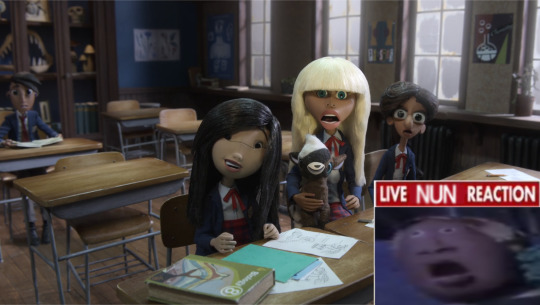
#wendell and wild#wendell & wild#shitpost#this post is just an excuse to make a live slug reaction joke
89 notes
·
View notes
Photo
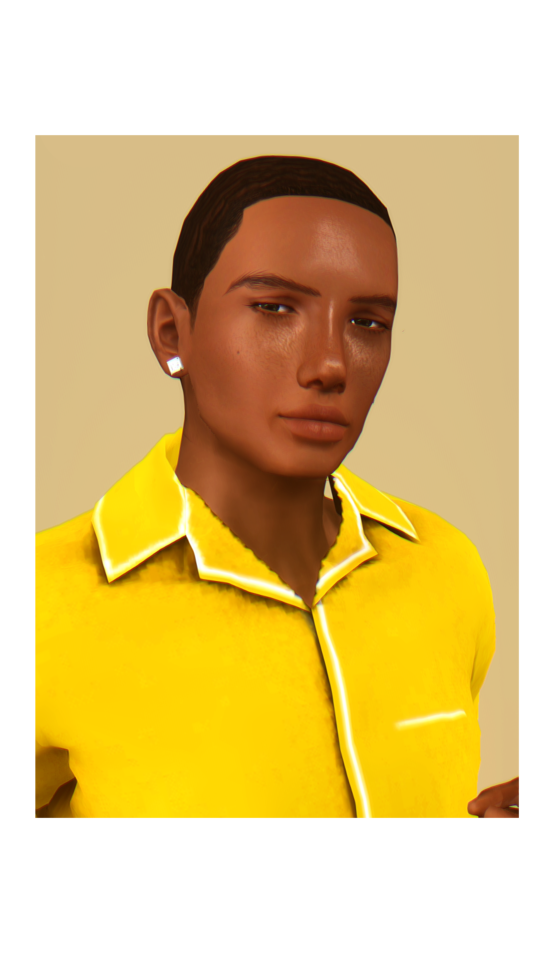
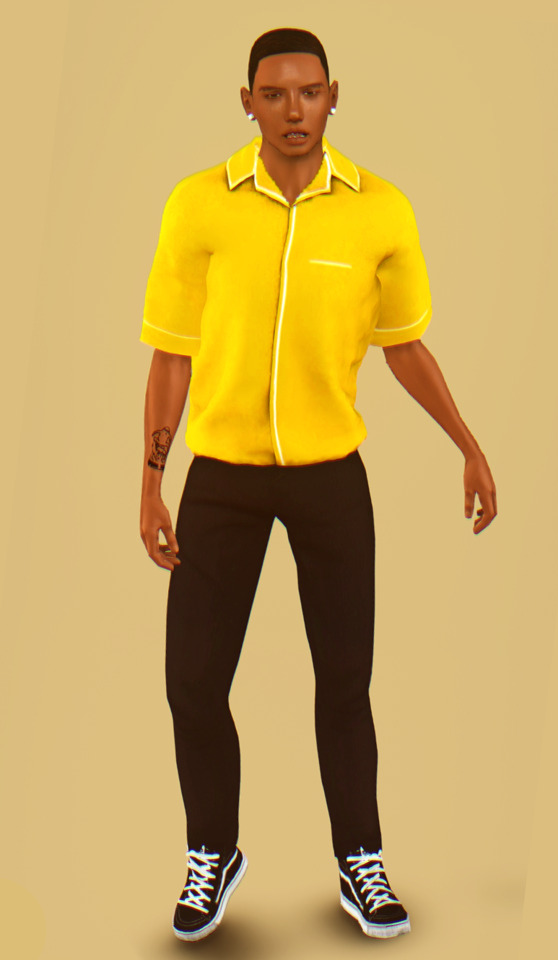
ARTIE FRANCO
Name: Artie Eros Franco
Alias’: None
Nickname: Art
Age: 18
Gender: Male
Species: Human
Social Class: High Class
Birthdate: January 1, 1999
Time of birth: 1:00 AM
Birthplace: Toronto, Canada
Zodiac: Capricorn
Nationality: Greek
Race: Black
Occupation: High school Senior
Language(s): Greek, English, French
Native tongue: Greek
Religion: Catholic
MBTI: ESFP
Alignment: Chaotic Good
—
Education: High School
Weapons/Offensive equipment: None
Items/Defensive equipment/Misc: Phone, School I.D, random cash
Money/Amount of:
-Funds (On person): $36
-Funds (In bank): /
Transportation: Bike, Aunt’s Car
—
Blood type: B
Height: 5’10
Weight: 140
Eye Color: Brown
Hair: Short 4a hair with waves
Skin: Slight dark caramel
Figure/build: More on the lanky/skinny side but slightly in shape.
Voice: here
—
Distinguishing marks:
-Tattoo(s): Random tattoos on leg, arm, and torso
-Scars: None
-Piercings: Ears
-Clothing style: Modern skater style, retro-ish with a hit of urban style.
—
Currently lives: Los Angeles, California
Living Arrangements: Lives with aunt in a two bedroom apartment.
Description of daily surroundings: Greek music softly playing throughout the house, clean environment, very family friendly and welcoming.
—
Hobbies: Skating, shopping, playing his bass guitar
Talents/Skills: Can name all of the greek gods, is extremely good at skating, a God when it comes to playing his bass.
Strengths: Balance, communication skills, persuasive, good leader
Weaknesses: Impatient, angered easily
—
Love interest(s): None atm
Sexual Orientation: Pansexual
Are they Sexually Active: in his dreams, yea.
Love or Lust: Love
Love Type: Agape
—
Left handed or right?: Right
What does their writing look like?:

Diet: Bunch of Greek meals and fast foods.
Virgin?: Yea
Drinker?: No
Smoker?: No
Drug user?: No
Other addictions?: porn.
Pet peeves: People scratching rust.
Police/Criminal/Legal record: None
Personal Hygiene: clean enough, could be cleaner. Smells really great, though.
Introvert or Extrovert: Extrovert
What does your OC choose to do about the, er, hair down there?: LET IT BE WILDD
Can they hold their breath for a long time?: Kind of.
5 songs that are probably on their iPod:
1. PROVIDER // Frank Ocean
2. You Know What // N.E.R.D
3. C U GIRL // Steve Lacy
4. FIND YOUR WINGS // Tyler, The Creator
5. DANCE // offonoff
—
Basic description:
Personality: Goofy, very fun and outgoing, slightly reckless, a little rebellious
Likes: boobs. Skating. Cute boys.
Dislikes: fake skaters. People who cry about thrasher being only for skaters
Motivations: Tony Hawk
Morals: None atm
Fears/Phobias: Dying alone
Favourite food: Chicken Souvlaki
Favourite drink: Arizona Green Tea
Favourite color: Mustard
Favourite song: SUMMER – BROCKHAMPTON
Favourite movie: Mr.Nobody
Favourite sport: Skating
Favourite book: One Punch series
Other favourites: more boobs
Most used word or phrase: “nah” “wicked”
—
Family:
-Parents: ??
-Siblings: None
-Other close relatives: Zora Alanis ( aunt), Jett Taylor (cousin), Marshal Taylor (cousin), Marcella Taylor (cousin)
Friends: Sol Roux, Dexter Smith, Kylo Rose, Nico Romero
Partner: None
Offspring: None
Enemies: None
Pet(s): None
Describe their social circle, what is their role within it?: As social as he is, his circle is surprisingly not as big as most people think it is. His circle consists of his close friends, some people from school, and the few kids he skates with.
—
#he was a skater boy she said see you later b oy#are those evn the lyrics#idk#who caress#but guess who finished their char page now time to finish these oc sheets#as u can see i took off stuff and added more stuff#oc:artie#char stuff#h:oc
35 notes
·
View notes
Text
The True History Behind Martin Scorsese's 'The Irishman'
https://sciencespies.com/history/the-true-history-behind-martin-scorseses-the-irishman/
The True History Behind Martin Scorsese's 'The Irishman'
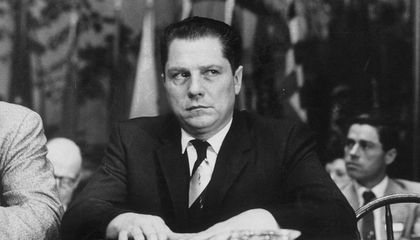
Martin Scorsese’s The Irishman provides a decades-spanning look at one man’s relationship to organized crime, organized labor, and the truth—however slippery that concept may be. That man, Frank Sheeran, played by Robert De Niro, was a union official and mob associate whose story intersects with labor organizer Jimmy Hoffa, the Mafia, and the Kennedys. The film, Scorsese’s first to stream exclusively on Netflix, is adapted from the 2004 Sheeran biography I Heard You Paint Houses by writer Charles Brandt, in which Sheeran claims that he killed Hoffa, amongst other figures. Hoffa’s sudden disappearance in 1975 still looms large as one of America’s longest-standing unsolved mysteries.
Sheeran’s stories are seductive—he was friends with Hoffa (Al Pacino), and he was an associate of Russell Bufalino (Joe Pesci), a mob figure who indeed had ties to both Hoffa and other high-level mafia families. And while many Hoffa scholars think Sheeran’s claims are bogus, and that Scorsese—and Robert De Niro, who has wanted to adapt the book for years—got the story wrong, the film’s portrait of how organized crime became interwoven with the labor movement and the highest levels of government in the 20th century carries many elements of truth.
youtube
As a guide to that era, here’s a primer that can either provide you with some key background information before sitting down to watch The Irishman or to fill in the gaps after viewing. The movie, which leaves theaters next week and will be available on Netflix starting Wednesday, November 27, runs more than three hours, so you have a lot of historical ground to cover.
Who was Jimmy Hoffa and was he really the most famous man in America?
James Hoffa, mostly known by the media as Jimmy, was a labor organizer even in his early career—at 14, he dropped out of school to work full time, and as a teenager he organized fellow grocery store workers to challenge unfair treatment by managers and to advocate for higher wages. He joined the International Brotherhood of the Teamsters in 1932 when he was still a teen, and by 1957 was elected president of the union, which at that point represented nearly one million truck drivers and warehouse workers. At one point in The Irishman, a voiceover from De Niro’s Sheeran asserts that Hoffa, in the 1950s and ’60s, was more famous than Elvis or the Beatles. That’s not an exaggeration—in a time when nearly one-third of American workers belonged to a union, Hoffa was the movement’s most famous face and de facto voice. On July 30, 1975, Hoffa set out for a lunch meeting at a local restaurant, and when he hadn’t returned home by the next morning, his wife Josephine called police. No trace of Hoffa was seen after that day, and he was declared legally dead in 1982. While some thought he was murdered by mafia associates, others thought it might be rivals within the Teamsters, and another line of inquiry attempted to discover whether or not Hoffa, afraid for his life, vanished of his own accord.

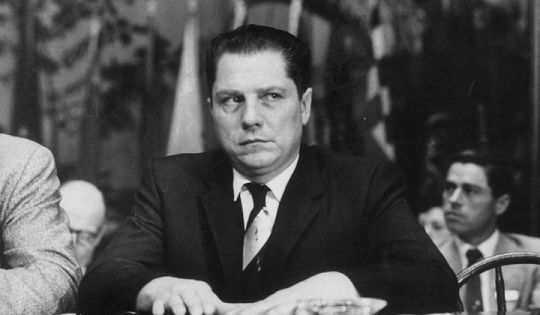
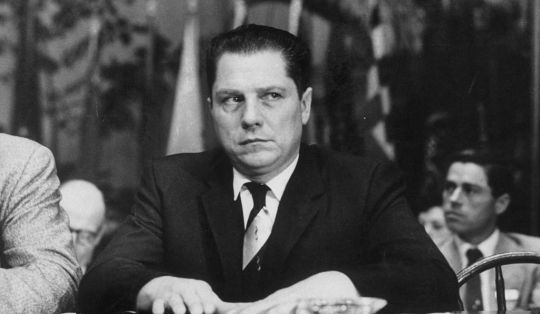

James R. Hoffa at the Teamster’s Union Convention
(Photo by Robert W. Kelley/The LIFE Picture Collection via Getty Images)
What did the Teamsters have to do with the Mafia?
In the mid-20th century, the Teamsters’ pension fund grew in size as membershipswelled. Many mafia families used this fund as a piggy bank, taking out off-the-books loans they’d use to fund the construction of casinos in Las Vegas (the mechanics of this story are detailed in Casino, another Scorsese film). “The problem with the loans to the Mob-controlled projects”, explained the National Museum of Organized Crime & Law Enforcement in a 2015 blog post, “was that many of them were not repaid promptly (or at all), and the corrupting influence facilitated ‘the skim’—the tax-free diversion of casino cash, delivered in suitcases to Midwestern mobsters.” Some of this cash made its way back to Hoffa and other union officials. At lower levels, mob enforcers would ensure unions won prime building, trucking, and transport contracts, keeping the flow of money steady. They would also pitch-in to help fix elections, either within the union itself or in city governments, ensuring key positions were held by union-friendly (and mob-friendly) candidates.
Who, then, was Frank Sheeran?
Many historians of the FBI, labor unions, and organized crime cast aspersions on Frank Sheeran’s stories that he killed Hoffa, or that he killed infamous “Crazy Joe Gallo” in Manhattan’s Little Italy in 1972. Writer and mafia historian Bill Tonelli, writing in Slate, exhaustively argues that Sheeran’s claims are mere fantasy: “Not a single person I spoke with who knew Sheeran from Philly—and I interviewed cops and criminals and prosecutors and reporters—could remember even a suspicion that he had ever killed anyone.”
But some of what Frank Sheeran says to Brandt in I Heard You Paint Houses is true—he was a close associate of mafia boss Russell Bufalino, and through Bufalino he did come to be well-acquainted with Jimmy Hoffa.
An Irish-Catholic WWII veteran, Sheeran, a truck driver by trade, began doing small jobs for Bufalino and the even higher-up Angelo Bruno (Harvey Keitel). As a non-Italian, he wasn’t eligible for full-fledged membership in the Cosa Nostra, but he was considered a trusted associate and friend by Bufalino. In I Heard You Paint Houses, Sheeran, who died in 2003, alleges that through Bufalino he became Hoffa’s right-hand man, tasked with protecting him on trips and even performing assassinations as necessary.
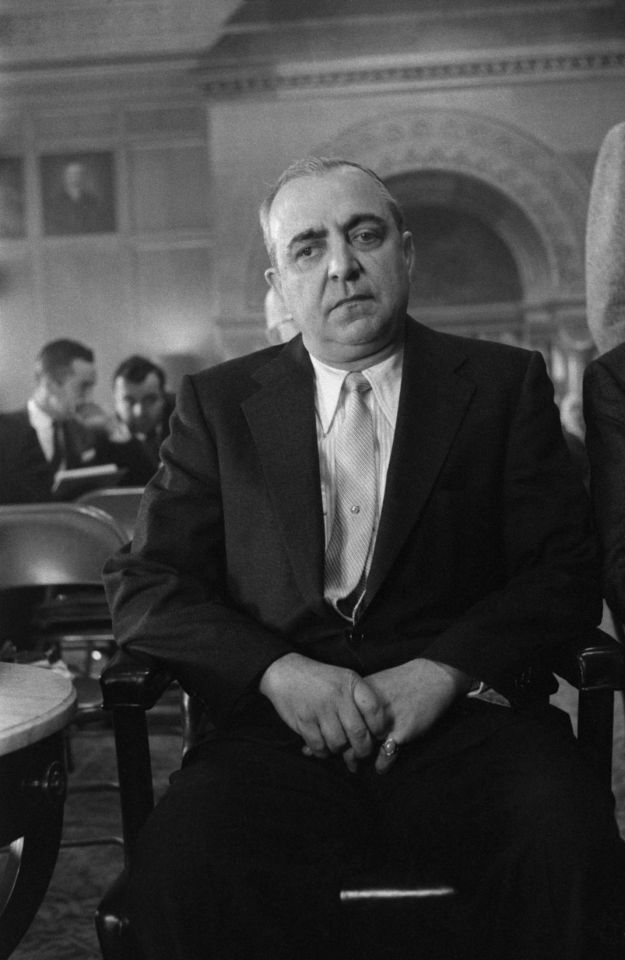
Russell Bufalino, of Kingston, Pennsylvania appears before the legislative watch dog committee during hearings in the Capitol on the Apalachin, New York, crime congress.
(Getty Images)
What role did Bufalino play in the Mafia hierarchy? Why was he important to the Hoffa story?
Born in Sicily in 1902, Russell Bufalino immigrated to the United States as a child. His family settled in Buffalo, New York, and after moving as a young adult to Northeastern Pennsylvania, Bufalino, by the mid-1960s, was the country’s most important mafia figure not based in a major city. His crew controlled Rust Belt communities like Wilkes-Barre and Scranton, Pennsylvania, and desolate stretches of highway that were useful to the mob because of both coal mining and long-haul trucking. Bufalino’s cousin, Bill (Ray Romano), meanwhile was Jimmy Hoffa’s personal attorney.
While never as notorious or prominent in the news as peers like Carlo Gambino or Joe Bonano, Bufalino was nonetheless a central figure in mid-century organized crime, and in the early 1970s was reportedly the interim head of the notorious Genovese family. As early as 1964, Bufalino was on law enforcement’s radar—a Senate subcommittee on organized crime called him “one of the most ruthless and powerful leaders of the Mafia in the United States.” In 1978 he was sentenced to four years in federal prison on an extortion charge, and was later sent back for an additional decade after a hitman he hired became a government informant. By all accounts, Bufalino and Sheeran remained close until the former’s release from prison in 1989, with Sheeran, convicted in the late 1970s of labor racketeering, continuing to act as Bufalino’s bodyguard and caretaker behind bars.
How did the Kennedys get involved in this story?
John F. Kennedy’s relationship with the mafia is probably second only to his relationship with Marilyn Monroe in terms of public fascination. While little direct evidence connects Kennedy patriarch Joseph P. Kennedy, Sr. to the bootlegging industry of the Prohibition age, he was a shrewd Wall Street investor and, later, Hollywood power player—he made several films in the 1920s with star Gloria Swanson (who also happened to be his mistress). At various points Kennedy served as the chairman of the Securities and Exchange Commission and the U.S. Ambassador to the United Kingdom, and he used this political capital to help the careers of his sons. In The Dark Side of Camelot, journalist Seymour Hersh alleges that Kennedy also leveraged his influence with the Chicago mafia to secure JFK’s victory over Richard Nixon in the presidential election of 1960. Scorsese’s film presents these connections as fact, even bringing up the persistent—but still unsubstantiated—suggestion that JFK’s assassination was a mafia hit.
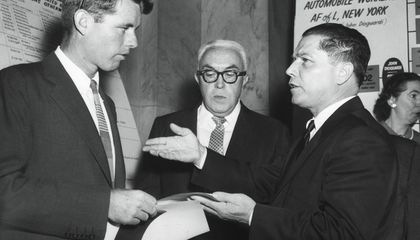
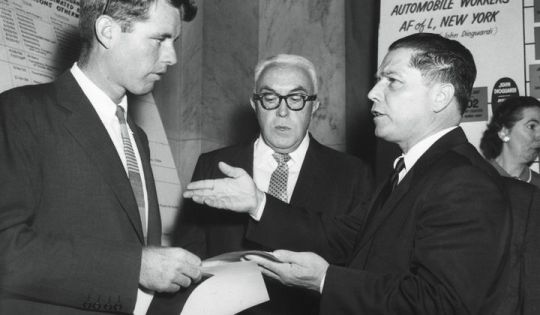
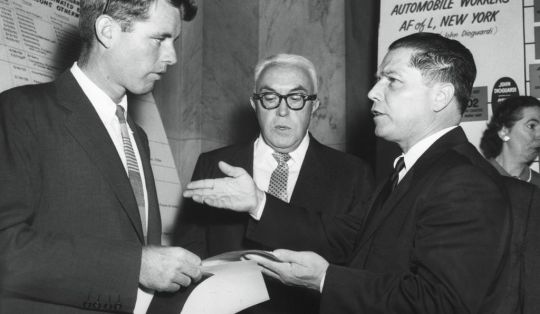

Robert Kennedy speaks with labor leader Jimmy Hoffa. Kennedy was chief counsel for the Senate Rackets Committee and investigated Hoffa’s ties to organized crime.
(Getty Images)
Where did Hoffa come into conflict with the Kennedy administration?
As soon as JFK installed his brother Robert as attorney general in 1961, Jimmy Hoffa shot to the top of the younger Kennedy’s personal Most Wanted list. A one-man anti-mob crusader, Kennedy and his team, Ronald L. Goldfarb outlines in 2002’s Perfect Villains, Imperfect Heroes, accused Hoffa of being little better than a mafia boss himself. He was charged at various points with bribery, fraud, and, most crucially, misuse of the pension fund, all while he tried to expand the Teamsters by bringing airline workers into the union.
According to Kennedy, Hoffa used the fund to make loans to organized crime figures across the country. More than political adversaries, the two men seemed to genuinely dislike each other. After a dinner with Hoffa, Kennedy reflected on the other man’s character: “On my way home I thought of how often Hoffa had said he was tough; that he destroyed employers, hated policemen, and broke those who stood in his way…When a grown man sat for an evening and talked continuously about his toughness, I could only conclude that he was a bully hiding behind a facade.” Kennedy, in this instance, prevailed—Hoffa was finally convicted of both fraud and bribery in 1964, and sentenced to 13 years in federal prison, though he got out in five thanks to a commutation by President Richard Nixon.
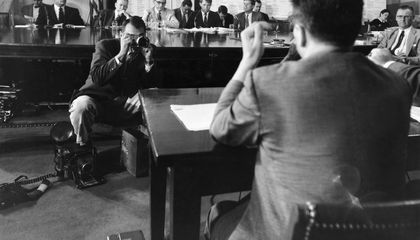
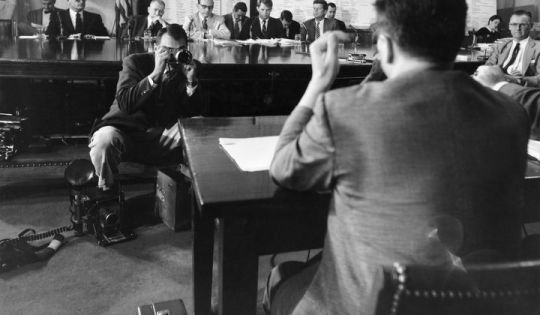
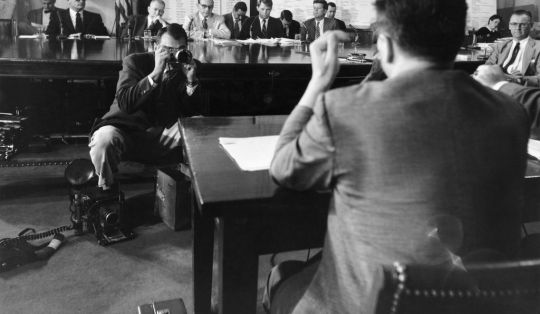

Facing the Senate Labor Rackets Committee for the fourth consecutive day, teamster boss James R. Hoffa testified today that he does not recall talking with racketeer Johnny Dio about the founding of seven phony teamster locals in New York. Council Robert Kennedy and Senator John F. Kennedy are seen in the background.
(Getty Images)
After his release from prison, Hoffa, still beloved by many in the Teamsters, attempted to take back his former position as head of the union. This is where most people believe he went wrong; many in the mafia believed Hoffa’s lust for power made him an unreliable associate. The initial investigations into his disappearance made it clear that Hoffa’s work was tied to the mystery: “Mr. Hoffa owes his fate, whatever it may be”, wrote the New York Times in 1975, “to his increasingly persistent efforts to restore his lapsed influence over the 2.2‐million member union that he built, almost single handedly, into one of the most potent economic and political forces in America.”
So if not Sheeran, who actually killed Jimmy Hoffa?
While not considered by contemporary law enforcement to be a primary suspect in Hoffa’s disappearance, Sheeran’s name did appear on the FBI’s initial list of suspects, but his relationship with Hoffa—and with Bufalino—means that he can’t be ruled out of having some connection to the crime, even if he didn’t pull the trigger himself.
In Hoffa lore, another name comes up regularly—Chuckie O’Brien, another of Hoffa’s longtime friends and aides. In 2004, the FBI matched Hoffa’s DNA to a hairbrush found in O’Brien’s car, though O’Brien’s stepson, lawyer Jack Goldsmith, vehemently denies O’Brien’s involvement. Most law enforcement sources agree that whoever actually killed Hoffa, the particulars Scorsese presents in The Irishman aren’t far off—Hoffa was killed after a meeting in a Detroit house, and his remains were either buried or cremated shortly thereafter.
More recently, in 2017, James Buccellato, a criminology professor at Northern Arizona University, reflected on some of the outlying ideas: “The craziest theory that I’ve ever heard was that he was actually, this was a while back, but that he was actually still alive and that he as being kept somewhere alive by the Mafia; sort of an ‘Elvis is still alive’ kind of theory.”
For his part, when pressed in an interview with Entertainment Weekly, Scorsese suggested that the truth of Hoffa’s disappearance is perhaps the least compelling part of the story: “What would happen if we knew exactly how the JFK assassination was worked out? What does it do? It gives us a couple of good articles, a couple of movies and people talking about [it] at dinner parties. The point is, it’s not about the facts. It’s the world [the characters are] in, the way they behave. It’s about [a character] stuck in a certain situation. You’re obligated to behave a certain way and you realize you may have made a mistake.”
#History
1 note
·
View note
Text
It appears that tumblr mysteriously deleted Generations chapter 2, as far as I can tell, so here it is, freshly posted.
Chapter Two
Meadowlark Farm stretched across four sections in central Kansas, more than two thousand acres of plains, rolling hills, riverbanks, stubborn cottonwoods, irregular ponds, and the occasional dense stands of timber. The old family farmhouse stood close to the middle of the property, near what had once been a river but was now a seasonal creek, in a particularly fine grove of cottonwoods. In high summer, the waxy leaves shimmered wildly in the slightest breeze, like a flock of dragonflies or a shoal of fleeing fish.
The house itself rested against a little rise in the land, looking out sedately over the fields, with one basement corner, the original cellar, built into the hill. Two ancient limestone fenceposts still marked the end of the patchy gravel driveway, half taken over by dandelions. Huge clumps of pampas grass marked the rutted drive. The house rested easily in the shade of tall elms and cottonwoods. Part of the original limestone foundation remained, ringing three corners of the original square ground floor. Seen from the side, where the driveway ended in a field of stubby buffalo grass, it looked regular enough, a typical nineteenth and twentieth century farmhouse in peeling white paint. Walking around the curving front porch revealed an extra wing, built on at a diagonal angle, which stuck out like an injured bird testing the wind with its good wing. The attic, a huge airy room above the original second floor, winked back at the sun with many small square windows.
Back of the house, in the triangle between the west-facing end of the house the northward-thrusting angle of thew the new wing - over a hundred years old and still it remained, in family parlance, "the new wing" - a little kitchen garden grew half-wild. Wide, smooth stepping stones marked the short path from screen door to the little plot.
Beyond the new wing, in the true backyard, children's playground equipment dotted the slope. Mismatched swings hanging from chains and ropes attached to rusting A-frames and weathered wooden beams swung gently in the perpetual Kansas breezes. Slides and monkey bars glinted in the hot sun. Chickenwire separated the play area from an enormous rectangular garden, already overflowing with produce, heavily over-planted, and exuding fragrant herb smells with every gusty breeze. The land ran down a gentle hill towards a dense growth of timber and a long, enormous pond.
Not too near the pond, several mismatched outbuildings hunched in what could not quite be called a cluster. Like a crowd trying to pretend it is not a crowd, each person too embarrassed to stand too close to anyone else, they held a swath of ground to themselves. A huge, two story barn with its paint long gone, worn to a brownish grey. A nearly shiny Morton building, not quite new but startlingly contemporary. A hay shelter, with rusted slanted roof. A skeleton barn, with just a few peeling boards left here and there, it's empty roof frame stretching over antique machinery. And a solid, unremarkable little shed, red boards dulled to maroon, covered in a patched roof of mismatched shingles topped with an enormous handmade antenna. The double front doors stood ajar and a solid-looking padlock hung from the wide-open latch, hanging casually open.
Beyond the swings, the big garden, the outbuildings, and the pond, the land fell sharply away to a creek bed. It was low in this high, dry summer, and nearly still. The banks, crumbled where the grass gave way to clay, ran with little wavering along the crease where hill met plain, until they met the little woods to the east. Cropland stretched out beyond the creek to the north. Near the trees, but not enough to be shaded by them except in earliest morning, just on the north side of the river, lay the old family burial ground.
It had not always been meticulously tended, but in Leah's lifetime the oldest headstones had been somewhat restored, the most egregious weeds removed, and this summer, even the grass had been recently mowed.
Anna-Lucia knelt at her mother's headstone. Martha Addison, beloved wife, mother, sister. May 8 2005 - August 15, 2070. RIP Et Lux perpetua luceat eia.
The thick granite headstone with its neatly cut, clear letters stood in line with several others, some so weathered and faded as to be hardly legible. After a moment, hand resting on the sun-hot granite, Anna-Lucia sat down and crossed her legs, shoulders slumped, hands folded in her lap. A few brown rosary beads hung between her fingers, but her mind had drifted into wind and dappled light and the hum of insects and the sound the tall grass made bowing again and again to itself in the gentle, incessant breeze. Time passed but she did not know it. Then -
"Here you are!"
Anna-Lucia started badly as a sun-blind silhouette loomed over and dropped down suddenly, throwing two strong arms around her shoulders.
Dazed from the bright light and her unintentional reverie, it took Anna-Lucia several stunned seconds to process the small hands with many rings, the flyaway, unevenly cut dark blonde curls, the lavender perfume.
"Liza!" she gasped out at last, returning the hug.
In the sixteen months since she had seen her sister, Liza's choppy curls had grown irregularly long. Her wiry arms were sun browned and stronger than ever.
"Oh, I have missed you, little sister," Liza sighed affectionately, giving her one last squeeze and sitting back, stretching out like a cat on the warm prickly grass. It was an old joke between them; Liza, the eldest, was as petite and youthful as their mother had been; Anna-Lucia had her father's bigger bones and had nearly always been mistaken as the oldest.
Trying to shake off the sun-daze and afternoon grogginess, Anna-Lucia found she had no words - just a huge, cheek-splitting grin, and a few irrepressible tears in the corner of her eyes. She gripped Liza's shoulder and squeezed. Liza smiled back, but her eyes were tired and new care lines were etched there.
"You didn't tell me you were coming," Anna-Lucia said at last, when the silence had stretched so long it began almost to feel like another dream.
"No one knew. Not even me, until forty-eight hours ago. I fully expected to miss this year's reunion and be stuck on the beat 'til Christmas."
"Lots to report in Rome?"
"I've hardly been there - they send me all over the EU. That's the great thing about this job. Catholicity is a small operation with big dreams. I'm really the only full-time culture reporter they've got, so I have my pick of assignments. There's enough for three of me and three Giovannis besides."
"I still can't believe they get away with that name."
Liza grinned wickedly. "Oh it's caused a few misunderstandings, but the reporter credentials, and the kinds of bylines I'm racking up, set them straight pretty fast."
"I hardly know anything about your job - you've sent three letters, Liza. Three, in a year and a half."
"Sixteen months, thank you very much." Liza hesitated. "It's - changing, over there. Letters aren't as... in vogue as they used to be."
Anna-Lucia looked at her sharply. "You're joking." She took a deep breath, closed her eyes, pushing away the lingering brain fog and reminding herself she was still not certain what privacy remained at home. Take nothing for granted. "I mean, nothing's more fashionable than retro, right? Where would the elite be if not at the height of fashion?"
Liza shrugged, an airy show of unconcern belied by the downturned corners of her mouth, as she reached into her bag, tossed carelessly on the ground next to her. "Whatever fires their rockets, I guess. It's pages, now. Personal pages to orally deliver messages."
Anna-Lucia felt inside, somewhere, that this was more important than she grasped, than her sister let on, but the sun had been slowly cooking her for more than an hour and Liza was pulling out of her carelessly dropped bag a thick wad of cream-colored envelopes addressed in a trailing scrawl she knew very well.
Her heart leapt. "You saw him!"
Liza shook her head, and she was pale under her tan. "These came through the postal service."
Not, Anna-Lucia registered distantly, the post office.
"That's how I found you out here, actually. I got in not twenty minutes ago and went in looking for Dad, and Grandma immediately sent me out here." Her eyes conveyed that Leah had warned her, too, they could not speak completely freely in the house. "These are all addressed to him."
Anna-Lucia stared at her. "Just to Dad? Not even one for me? Or you?"
"I tried to tell you." Liza held out the letters. "Check the dates." Swiftly, Anna-Lucia tugged the rubber bands off the thick stack and they uncompressed in her hands, spilling over her lap. Each was labeled, F1sh, followed by a string of numbers she recognized as an encoding of month, year, and - something she couldn't decipher. Location, probably.
"A year ago? The most recent one is twelve months old?"
"One's only seven."
"You've read them?"
Liza frowned at her. "I take my job seriously, Anna-Lucia."
"I'm sorry. Stupid question." Mechanically, Anna-Lucia gathered the letters back up and rebound them. "So you've had no news."
Liza just looked at her.
Understanding began to dawn, and Anna-Lucia did not like it. "That's why you came home."
"We need Uncle Kevin's address book."
"No news at all? Seven months and nothing? Not a single person knows where he is or what happened to him?"
"Will you help me find Dad?" Liza pleaded, glancing down at her watch, a slim, chic, old fashioned ladies' analog. "He needed these... yesterday."
Anna-Lucia felt as unmovable as the headstones beside her.
"Please, Anna-Lucia. I don't... I can't tell him alone."
Liza stood and held out a hand. Anna-Lucia grasped it and was hauled to her feet, stiff, half-asleep limbs complaining and uncooperative. She heaved a deep breath, involuntarily, as if she'd been swimming underwater. Their little brother had been missing for at least seven months, and no one had heard a thing.
"Dad's in the new shed."
2 notes
·
View notes
Photo

We embark on a 13 hours journey to North Horr from Nairobi, a 726 km journey to the North of Kenya. North Horr is located in Marsabit Country, a 5 hours journey that has one experience first-hand how life is in the North through the towns of Maikona, Kalacha and finally North Horr. The topography all rusted, raw and yet beautiful that entails volcanic rocks, the Chalbi desert, water oasis where camels and goats, as well as humans, get their water from. One is in awe as the topography unfolds.
We arrive late evening having missed several wedding rituals. All we got to experience was the actual wedding day. We are told this has been a 12 months courtship for the couple and a four-day affair that culminates to the wedding and a further four days for the bride and the groom to stay indoors. Where traditional rituals will be performed finalizing the end of the wedding ceremony and marking the beginning of the couple living together. (Marriage).
Our host Sarah of Chalbi Dessert Extreme is at hand to ensure we are well taken care of and hands us over to one of the elderly uncles who will explain everything we need to know about the Gabbra people and their traditional wedding ceremonies ritual and significance. Weddings take place twice a year in April and September, after the sighting of the moon.
Wedding Day
Like all other weddings across Kenya, the wedding day is packed with activities. The bride is downed with make-up, henna art as well as her bridesmaids. Before she can wear her wedding gown ready for the church ceremony she has to herd her father’s camel’s back home one last time. This means that she is finally leaving her parents’ home. Meanwhile, the groom’s family is getting ready to bring in the dowry of three camels, a moila camel packed with gifts. There are also gifts to the bride’s family that include milk, tobacco and coffee beans. Women are at hand to receive the gifts. There is also a bull that will be slaughtered, for the wedding feast.
Prayers are chanted by the communities’ religious elders and the bull is finally slaughtered at the bride’s mother entrance to her house.
This means that they –the bride and the groom family are now in-laws. Meanwhile, the bride is getting ready to go church as they are Christians (Catholics) a short distance from their home. The ceremony takes about 2 hours and we are back for the rest of the traditional ceremonies lined up for the festivity.
Reception
We return back home ready for the remaining day’s events. Like all other reception ceremonies in Kenya, food is at the centre of the ceremony. Food and refreshments are served.
Dance and Jubilation characterizes the wedding reception
Dance and jubilation fill in the homestead. Being the wedding season there are several weddings across the area. Jubilations can be heard from several homesteads; the atmosphere seems to birthed tunes of dance, music, celebration and happiness.
Groom rituals
The Shaving of the Groom: The groom is clean shaved meaning he is born again into family life/ marriage life. The shaving means that he is no longer a bachelor. He is there dressed in Gabrra traditional attire that includes a while shuka, a white turban and is handed a walking stick.
The Groom shaving ceremony by his father
He then leaves the homestead to pick a special tree that will be part of his new bride’s house. While all this is going on, the bride is having a good time and partying, characterized by dance and receiving gifts from her guest.
Dressed in a white turban
On another side of the homestead, women are busy demolishing the mother’s Manyatta /house. Half the materials will be used to build her daughters new house. A mock is done, and the mock house is built for the bride.
The returning of the groom marks the beginning of building the mock house for the newlyweds. He picks and marks the circumference and the position of the new house and draws a semi-circle. Women follow suits by placing the building materials while adding more as gifts. A cleansing ceremony is done using camel milk. The groom’s father pours camel milk from the outside while the mother pours milk from the inside. This ceremony is accompanied by reciting of prayers and blessings to the newlyweds by the elders. Brothers and in-laws also pour milk from the outside and inside of the semi-circle.
The groom now sits outside of his now to be home, and a fire is kindled using a special tree picked along the river banks. A sign that the groom and bride have lit their first fire that should be a lasting one. A section of the women some carrying babies as a sign to appease the Gods for fertility to the newlyweds, start building the newlyweds house while the others go to rebuild the mothers’ house as they had already demolished it. This activity goes on till way past sunset into the night.
The rest of the wedding guests are having a good time with dance and a live band. As night falls, dance, jubilations, and lots of partying take place as the night falls. There is plenty of food and drink that include local delicacies, drinks, as well as alcohol.
The groom is now also having a good time with his peers who chant the night through as he awaits his bride to be brought to him at the early morning hours of the following day. He must not fall asleep, and he must not go into the newly built house until his in-laws hand over to him his new wife.
The bride, on the other hand, spends her last moments with her mother and aunties who are advising her of what it takes to a wife. This is the most emotional time for the bride’s family, the separation of a daughter is heavy to the home. At 4 am the bride is escorted by women to her newly built home. On arrival, a milk container is placed at the entrance of the newlyweds’ home and the groom jumps over the milk with the wife the following suit. We are told they have to stay here for 4 days after which they can now get out which means that their marriage has finally begun.
Kenyatalii’s verdict
Northern Kenya is one of the most magical but largely unexplored areas of Kenya. A cultural tour will have you indulge mingle and learn about the several pastoralist communities that live here all with diverse cultures.
0 notes